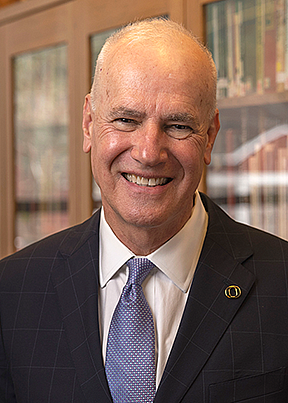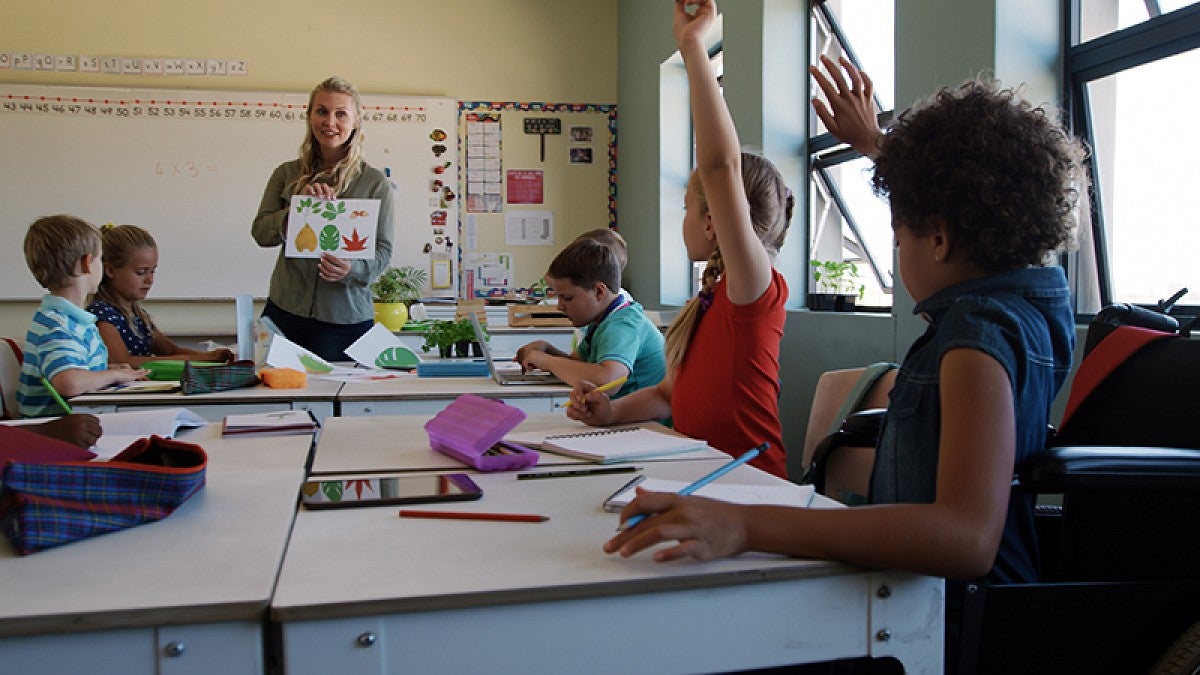While The Ballmer Institute for Children’s Behavioral Health at the University of Oregon took a big step forward with the recent approval of the purchase of the institute’s future site, other details are beginning to take shape.
The UO Board of Trustees approved a purchase agreement to acquire the former Concordia University campus in northeast Portland, which would house the institute and its effort to address the behavioral health needs of children and youth, led by faculty who are leaders in their field. Founding and affiliated faculty are being added to the institute as it prepares to roll out its first workshops for Portland Public Schools as soon as this summer and in advance of its scheduled opening in 2023.
Randy Kamphaus, acting executive director for the Ballmer Institute and most recently the dean of the UO College of Education, said the institute will be at the forefront in addressing an issue that has worsened and become more apparent over the past two years.
“This institute is going to bring together philanthropy, education and government, entities that historically have often worked on parallel paths to respond to our children’s needs, to address an issue that has been deemed a public health crisis,” said Kamphaus, an elected fellow of the American Psychological Association and whose research includes behavior health assessment development and practice.
“The faculty affiliated with the Ballmer Institute will lead us as we face this crisis,” Kamphaus added. “They bring expertise in addressing disparities in behavioral health, developing behavioral health partnerships with historically underserved communities, and resolving the challenges of children and families exposed to trauma, among other areas of societal need.”
He filled in additional details about the institute:
Q: Why now?

Additionally, the mental and behavioral health workforce shortage has become more apparent. Never before has the United States stared down a crisis like this among youth as dire as the one we now face. Our children and our communities require an urgent response.
We need to help children and youth reestablish nurturing relationships with peers, teachers, their families and communities, and the UO is uniquely positioned to establish the Ballmer Institute with its work in prevention science, neuroscience, and child development.
Q: How will the institute unfold?
A: We are in the earliest stages of curriculum development. We’re gathering information from teachers in Portland Public Schools, from administrators and students, and surveying the latest research on behavioral and emotional health practices.
Starting this summer, we’ll begin offering in-service opportunities for education personnel followed by a post-baccalaureate behavioral health certificate program for this fall. Our new bachelor’s degree program will be in place for an entering class in fall 2023.
Later this year we will begin the process of hiring 10 tenure-related faculty members and 15 clinical professor faculty members. That will allow undergraduate trainees to learn from faculty members who are teaching and mentoring while at the same time providing much-needed services in schools, communities and hospitals.
We know this schedule is ambitious, but we also know that the needs of children and youth are critical and in need of our immediate and full efforts.
Q: How will these new specialists complement existing school workers?
A: We seek to add a new and needed group of professionals to the existing behavioral health workforce: behavioral health specialists who will enhance and extend the efforts of the existing workforce. Pending approval by the state, our proposed bachelor’s degree program will graduate at least 200 behavioral health practitioners each year who will develop their skills via innovative workforce education and training programs.
They’ll be able to deliver services to schools and across a broad spectrum of children’s behavioral health settings. As the programs mature and we have our new faculty members in place, I anticipate that we will be able to develop more specialized experiences for students who want to enter hospital or community-based practices.
We will also train our certificate and bachelor’s degree students to deliver a set of innovative, science-based early detection, prevention and treatment strategies for children and their families.
Q: How will it benefit historically underserved communities?
A: First, our faculty hiring programs will allow us to hire more scholars with deep experience living and working in persistently underserved communities, which will allow them to develop strong and longstanding ties with the communities they will serve as part of the Ballmer Institute.
Additionally, the Ballmers’ provision of a $100 million endowment for student scholarships is an important tool for increasing local students’ access to the bachelor’s degree program.
We need a bold cycle of academic programming, service delivery and discovery that focuses on historically underserved children and families to meet the moment. This is only possible by weaving together research, training and clinical application that reaches directly into the community and is co-created by community members. Each reinforces the other, allowing for rapid innovation to meet a dynamic and growing problem.
Lastly and most significantly, when it comes to meeting the workforce challenge of equity and inclusion, a bachelor’s degree occupation increases accessibility to prospective students from persistently underserved communities.
Q: What are you most excited about?
A: That this institute brings together experts from across campus and multiple disciplines, and it capitalizes on our university’s strengths to begin solving a longstanding crisis that has worsened over the past two years. We’ll have the leading minds collaborating to develop a workforce with a combination of skills that has never existed before. We’ll create an entirely new workforce that can be duplicated around the country to better meet the behavioral health needs of our nation’s youth and their families. I encourage everyone to follow our progress at childrensbehavioralhealth.uoregon.edu.
—By Jim Murez, University Communications


